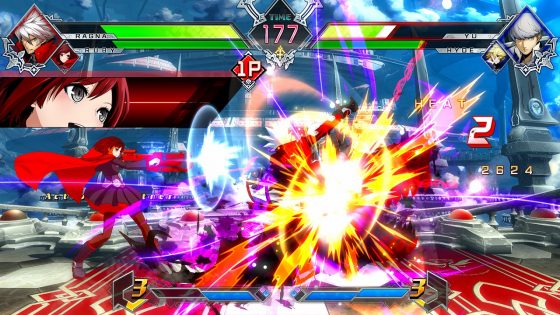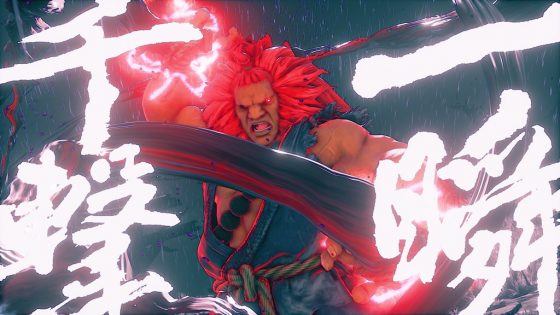
If you’ve followed my writing, then you’re probably aware of my interest in media, in particular, film. While this interest blossomed later in my life, one passion has stayed with me before and after college.
Fighting games were my childhood hobby. From the early days of Street Fighter II: Turbo to my current game of Blazblue Cross Tag Battle, I’ve competed in so many fighting games that I barely remember them all.
Throughout my years within the fighting game community, I’ve built relationships that would change my outlook on life. What seemed like a mere hobby became a part of my identity--an aspect of my life that drove its self-improvement.
As a change of pace from my normal writing, I wanted to do a less formal article, discussing aspects of fighting games I enjoyed and hopefully inspiring others with my thoughts. While I still do stream fighting game events, I’ll leave those ideas for another article. For now, I hope you enjoy my musings on one of my favorite passions.
Self-Expression: Finding Yourself Through a Character
A fighting game can be appealing in several ways; one of the most important is its cast. Fighting game developers understand this and go out of their way to make trailers to showcase a new character. At times, developers will borrow characters from other franchises and put them into their own game. Tekken 7, Mortal Kombat 11, and Smash Smash Brothers Ultimate are perfect examples.
In fighting games, a character is a mixture of visual design, lore, and gameplay. At their best, characters can become vessels for self-expression. Due to this, it’s not unheard of for players to form an attachment as they spend hours learning and developing their personal style on a character’s tactics.
When a fighting game system allows for nuance, players who choose the same character can be distinguished. People from different backgrounds can apply their own experiences, making for radically different approaches to the same character.
Speaking from personal experience, I think of fighting games as a conversation. When players choose certain decisions in a match, they are saying something about how they approach the game.
A player who consistently hits me out of the air (uses an anti-airs attack) is saying I cannot jump and attack them. A player who chooses to do an invincible attack on their wake up could be nervous or is trying to tell you to bug off and give them space.
It gets even more interesting when a player is trying to throw you off by making decisions they wouldn’t normally do. In these cases, you have to understand if they are “lying” in their conversation and will revert back to their normal style or they have adapted to your style with an effective tactic. From my perspective, each decision has a message and allowing for this nuance is what makes fighting games fun.
The Learning Process: What Makes You Tick
Fighting games are a physical, emotional, and mental endeavor. To perform a combo and react to your opponent requires muscle memory and visual awareness (physical). Being able to keep oneself motivated or calm even after a loss requires you to control your feelings (emotional). Lastly, deducing the solution to a tactic and being able to apply the solution is problem-solving (mental).
In a strange sense, I’m reminded of the martial arts films I adored as a child. The goal behind fighting games is to understand your opponent, but more importantly, yourself. When you play fighting games, it’s important to understand your learning process.
Some might learn better through touch or visuals. Others might do better with narrative learning (creating a story to help one’s memory). Some might do better learning through sound. Understanding your learning style helps you solve problems by approaching in a way that fits you.
One example comes to mind. I was having a conversation with a basketball coach, and I asked him how he was able to play so well in fighting games--specifically, why was he able to notice ideal spaces he should control?
What came next was his explanation: zone defense. In basketball, zone defense is when players are assigned a specific region of the court. By inhabiting this area of the court, their job is to control any opposing player that enters into that area. By thinking of fighting games as a “series of zones,” this basketball coach was able to play fighting games that best fit him.
The Social Aspects: the Community
In the previous sections, it was discussed how fighting games can make you familiar with yourself. However, that process is not exclusively within the game; it’s also outside of it. The fighting game community, or the FGC as it’s called, is a diverse and openly social community
Each competitive game not only has nuance in gameplay but nuance within its community. While in other competitive games such as the MOBA genre, different games will not be in the same tournament, it’s common within the FGC to have multiple different fighting games held at a venue. This close proximity allows players to learn from one another, interact, and converse with people from all around the world.
This social aspect of the FGC is one of its greatest strengths. Unlike other Esports events, the fighting game community is often run by members within it, creating a closeness, not just with its players, but the commentators, event organizers, streamers, and audience.
While an important part of fighting games is competing, it is hardly only about winning. So much of the genre is about the journey, the self-discovery, and the relationships you make along the way.
Final Thoughts

By channeling my focus into fighting games, my desire for competition lead to a better understanding of myself. While it started out as a simple hobby, my time with the FGC lead to a flourishing social life that stayed with me well beyond college. Hopefully, this short article has inspired your interest in the genre and perhaps more articles of this nature will come in the future.




